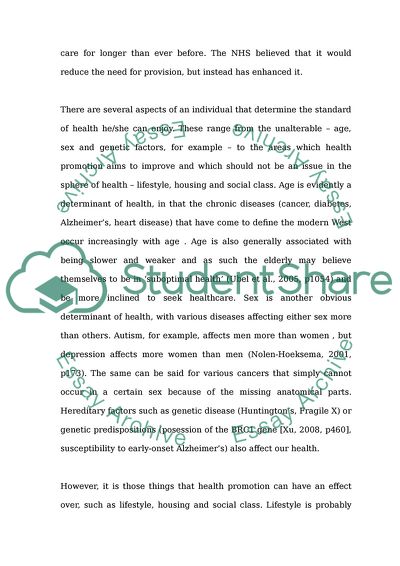Cite this document
(The Effect of the National Health Service Has on the Health of the UK Term Paper - 1, n.d.)
The Effect of the National Health Service Has on the Health of the UK Term Paper - 1. Retrieved from https://studentshare.org/health-sciences-medicine/1751014-athe-original-concept-of-the-nhs-in-1948-was-to-improve-the-health-of-the-nation-it-was-perceived-that-this-would-result-in-a-reduction-in-future-need-for-provision-discuss-these-statements-refering-to-existing-models-of-health-2000-words-worth-7
The Effect of the National Health Service Has on the Health of the UK Term Paper - 1. Retrieved from https://studentshare.org/health-sciences-medicine/1751014-athe-original-concept-of-the-nhs-in-1948-was-to-improve-the-health-of-the-nation-it-was-perceived-that-this-would-result-in-a-reduction-in-future-need-for-provision-discuss-these-statements-refering-to-existing-models-of-health-2000-words-worth-7
(The Effect of the National Health Service Has on the Health of the UK Term Paper - 1)
The Effect of the National Health Service Has on the Health of the UK Term Paper - 1. https://studentshare.org/health-sciences-medicine/1751014-athe-original-concept-of-the-nhs-in-1948-was-to-improve-the-health-of-the-nation-it-was-perceived-that-this-would-result-in-a-reduction-in-future-need-for-provision-discuss-these-statements-refering-to-existing-models-of-health-2000-words-worth-7.
The Effect of the National Health Service Has on the Health of the UK Term Paper - 1. https://studentshare.org/health-sciences-medicine/1751014-athe-original-concept-of-the-nhs-in-1948-was-to-improve-the-health-of-the-nation-it-was-perceived-that-this-would-result-in-a-reduction-in-future-need-for-provision-discuss-these-statements-refering-to-existing-models-of-health-2000-words-worth-7.
“The Effect of the National Health Service Has on the Health of the UK Term Paper - 1”. https://studentshare.org/health-sciences-medicine/1751014-athe-original-concept-of-the-nhs-in-1948-was-to-improve-the-health-of-the-nation-it-was-perceived-that-this-would-result-in-a-reduction-in-future-need-for-provision-discuss-these-statements-refering-to-existing-models-of-health-2000-words-worth-7.


